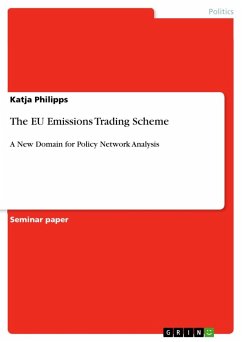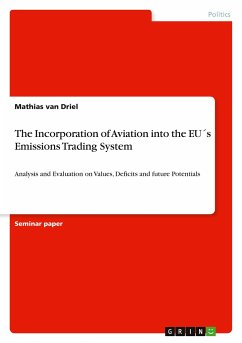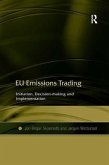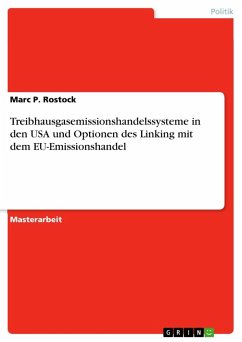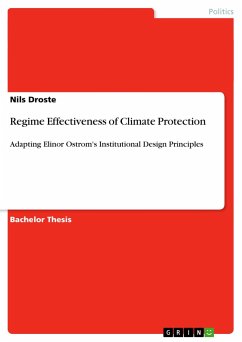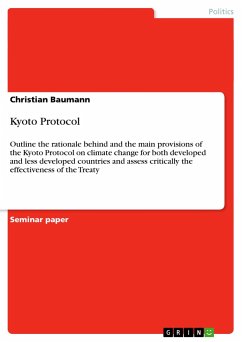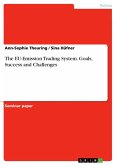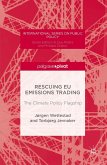Seminar paper from the year 2012 in the subject Politics - Topic: European Union, grade: 1,0, University of Münster (Institut für Politikwissenschaft), course: European Environmental Politics, language: English, abstract: Due to ever mounting scientific evidence, today neither climate sceptics nor climate believers deny the fact that climate change is occurring and that human activity can be regarded as a prime cause. Uncertainty solely remains about the precise relationship between specific concentrations of particular greenhouse gases - most importantly water vapour and carbon dioxide - and changes in global temperatures. It is beyond doubt that certain gases in the atmosphere contribute to the so-called 'greenhouse effect' by trapping heat. Human activity like burning carbon-based fuels, but also deforestation and ploughing is intensifying this effect and causing a constant rise in carbon dioxide concentrations. The growing empirical evidence for climate change triggered a global response, even though some authors classify it as 'meagre' (Helm 2008). In 1992, 154 countries joined the United Nations Framework Convention on Climate Change (UN FCCC), to cooperatively consider what they could do in order to limit average global temperature increases and the resulting climate change. The UN FCCC built upon the Intergovernmental Panel on Climate Change (IPCC) established in 1988, an international scientific collaboration entrusted with the task to 'provide the world with a clear scientific view on the current state of knowledge in climate change and its potential environmental and socio-economic impacts' (IPPC n.d.). The UN FCCC finally kicked off the process which culminated in the Kyoto Protocol, adopted in Japan on 11 December 1997 and entering into force on 16 February 2005. The Protocol commits 37 industrialized countries and the European Union (EU) to stabilize their greenhouse gas emissions and sets binding emission reduction targets for a certain period (cf. UN FCCC n.d.). Being of particular relevance for this paper, the Kyoto agreement enabled the European Union Emissions Trading Scheme (EU ETS) to get under way as a prototype for a global emissions-trading regime. The aim of this paper is to have a closer look at the EU ETS and to examine whether the development of the regime can be explained by using the lens of policy network analysis - a concept that appears particularly well suited to grasp the essence of multi-level governance in the European Union (cf. Jachtenfuchs 2001:255). The central question is whether the actors involved in the development of the EU ETS can be identified and classified by using policy network analysis as a theoretical framework.
Hinweis: Dieser Artikel kann nur an eine deutsche Lieferadresse ausgeliefert werden.
Hinweis: Dieser Artikel kann nur an eine deutsche Lieferadresse ausgeliefert werden.

